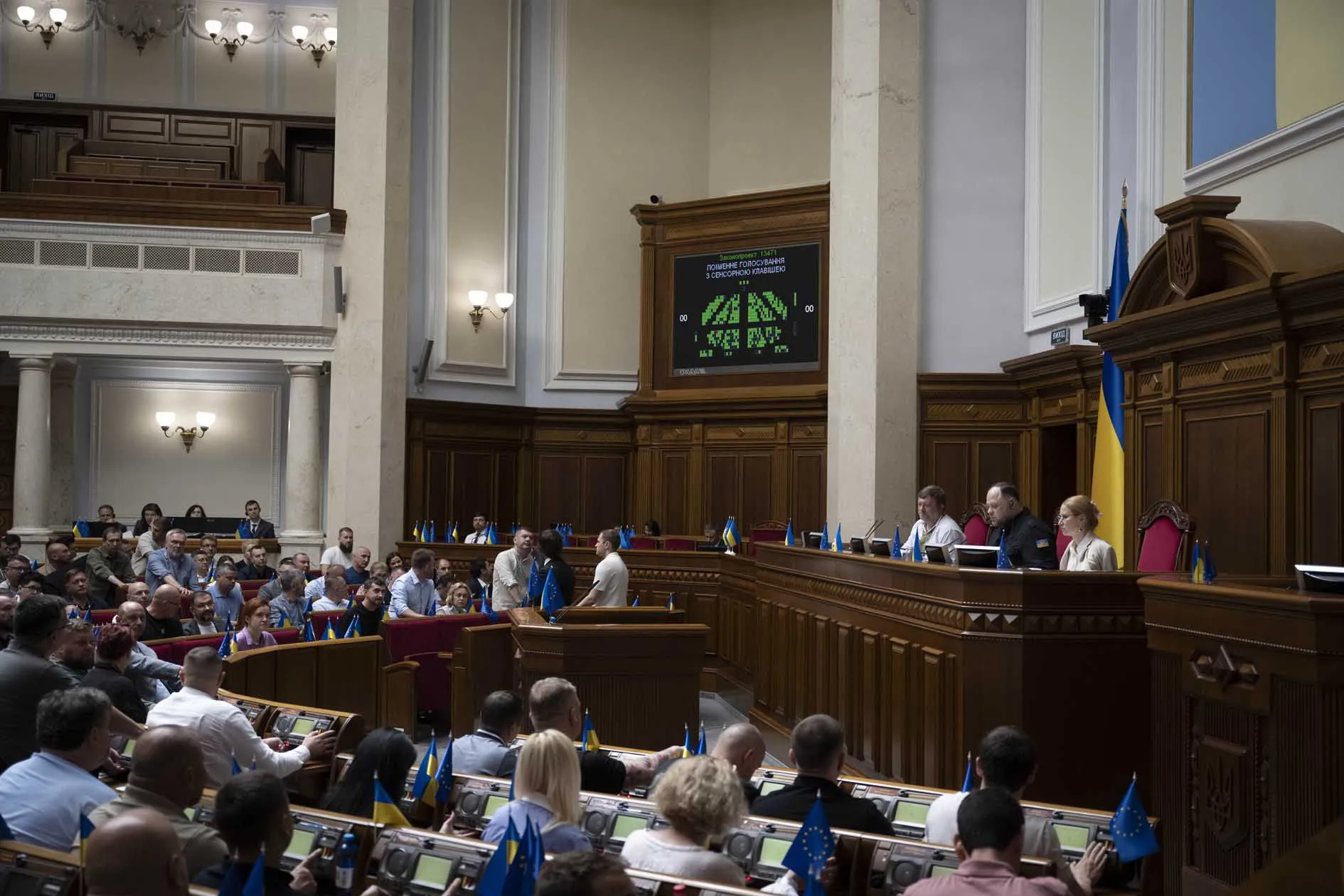Today, July 22, 2025, the Verkhovna Rada of Ukraine dealt a devastating blow to the independence of anti-corruption institutions by passing amendments to draft law №12414, which effectively subordinate the National Anti-Corruption Bureau (NABU) and the Specialized Anti-Corruption Prosecutor’s Office (SAP) to the Office of the Prosecutor General. The decision, supported by 263 deputies, sparked a wave of outrage among opposition forces, international partners, and civil society, who warn that this could undermine one of the key reforms necessary for Ukraine’s European integration.
The bill, officially titled "On Amendments to the Criminal Procedure Code of Ukraine regarding features of pre-trial investigation of criminal offenses related to the disappearance of persons under special circumstances during martial law," appears technical at first glance. However, according to Anastasia Radina, a deputy from "Holos," it was amended with "toxic" amendments that transform SAP into a "decorative institution" and allow the Prosecutor General to have full control over NABU’s activities.
What does the bill change?
Draft law №12414 grants the Prosecutor General unprecedented powers:
Access to all NABU cases with the ability to delegate this access to other prosecutors.
The right to issue mandatory written instructions to NABU detectives, and in case of their non-compliance — to change jurisdiction, transferring cases to other agencies.
The ability to close investigations at the request of the defense.
Exclusive right to resolve jurisdiction disputes and independently sign suspicion notices for top officials.
Depriving the SAP leader of the right to join prosecutorial groups, essentially excluding him from key decisions.
According to NABU and SAP, these changes "will completely destroy the independence of the anti-corruption system in Ukraine." Both institutions publicly called on the parliament not to vote for the bill, emphasizing its disastrous consequences for the fight against corruption.
Political storm in the Rada
The voting on the bill was accompanied by dramatic events in parliament. Opposition factions "European Solidarity" and "Holos" tried to disrupt the consideration, proposing to remove the document from the agenda. Only 53 deputies supported their motion — insufficient to block it. Subsequently, the opposition took a radical step by initiating the removal of Speaker Ruslan Stefanchuk, whom they claimed violated procedures by submitting the bill for a vote. This initiative also failed, gaining only 23 votes. In a desperate attempt to stop the process, parliamentarians blocked the podium, but the Rada methodically supported each amendment to the bill.
The shadow of Russian influence?
The vote took place against the backdrop of a loud scandal. On July 21, the Security Service of Ukraine (SBU) and the Office of the Prosecutor General conducted at least 70 searches of NABU and SAP personnel, accusing some employees of treason, espionage on behalf of Russia, and corruption actions in the interests of oligarchs. Notably, Ruslan Magamedrasulov, one of the heads of NABU’s interregional detective units, and an employee of the elite "D-2" division of the Bureau’s central apparatus, were detained. The SBU also implicated MP Fedor Khristenko from the banned OPPZ party, claiming he was an FSB agent currently hiding abroad.
However, these accusations raise doubts. NABU stated that the searches were conducted without court warrants, and the charges relating to traffic accidents involve old incidents. Meanwhile, the SBU organized an unscheduled audit of the state secrets protection in NABU, taking advantage of the Bureau’s leadership being abroad. SAP claims that the SBU gained access to information about their covert operations, which could jeopardize ongoing investigations. The SBU dismisses these accusations as "manipulative."
Geopolitical consequences
The Rada’s decision has far-reaching implications. The independence of NABU and SAP was a key condition for Western support for Ukraine, notably from the International Monetary Fund and the European Union. These institutions, established after the 2014 Revolution of Dignity, became symbols of the fight against corruption, which for a long time undermined public trust in Ukrainian authorities. Sources close to diplomatic circles in Kyiv report that G7 ambassadors are already preparing a statement sharply criticizing the bill, and discussions are underway about possible suspension of financial aid if reforms are rolled back.
Why is this important?
For Ukraine, fighting Russian aggression, combating corruption is not only a domestic issue but also a matter of national security. Weakening NABU and SAP could undermine public trust in the government and complicate relations with Western allies, who demand transparency in exchange for support. As the country depends on international aid, this step appears to be a dangerous game that could cost Ukraine dearly.


